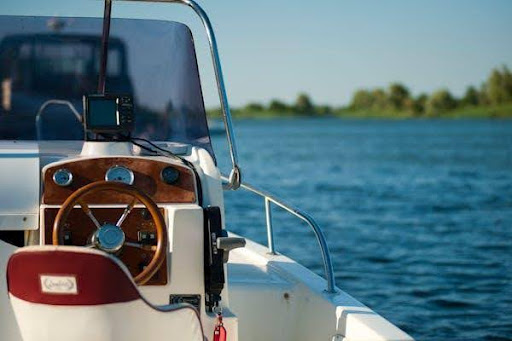Whether you’ve sustained injuries or experienced property damage, taking the right legal steps is crucial to protecting your rights and securing any compensation you might be entitled to. When dealing with legal matters, it’s always beneficial to consult professionals like a Roundup lawsuit lawyer, who knows how to dive deeper into the essential legal steps after a boating accident.
Boating accidents can result in serious consequences, including injuries, fatalities, and significant property damage. In such instances, it’s vital to follow certain legal steps to ensure that you are adequately protected and that your rights are preserved.
- Report the Accident
The first step after a boating accident is to report it to the appropriate authorities. Depending on the severity of the accident, this may include the local police, the Coast Guard, or state boating authorities. Immediate reporting is required if there are injuries, fatalities, or significant property damage. Timely notification ensures that an official report is filed, which can be crucial for insurance claims and legal proceedings.
- Ensure Safety and Provide Aid
After ensuring that the accident is reported, the next priority is safety. Check for injuries among all passengers and provide first aid if necessary. Using life jackets and other safety gear is important to prevent further harm. If the boat is in danger of sinking, use emergency equipment to stabilize the situation or evacuate if necessary. Providing aid and ensuring safety can mitigate further injuries and is often legally required.
- Document the Scene
Gathering evidence at the scene is a critical step. Take photographs of the accident scene, the boats involved, and any visible injuries or damages. Collect contact information from witnesses and other boat operators. Detailed documentation can support your insurance claims and any potential legal action. It is also helpful to keep a written record of events while they are fresh in your mind.
- Exchange Information
Exchanging information with other involved parties is necessary. Obtain names, addresses, and insurance details from other boat operators and passengers. This exchange is similar to what occurs in a car accident and is vital for follow-up actions. Accurate information exchange can facilitate smoother communication between insurance companies and legal representatives.
- Seek Medical Attention
Even if injuries seem minor, it’s crucial to seek medical attention as soon as possible. Some injuries may not be immediately apparent and can worsen over time. A medical professional can document your injuries, which is important for health and legal reasons. Follow-up care ensures that all injuries are treated properly and provides necessary medical records for your case.
- Notify Your Insurance Company
Contact your insurance company promptly to report the accident. Provide them with the information and documentation you have gathered. Early notification allows for a more efficient claims process. Be honest and detailed in your report to avoid any complications or disputes over your claim. Your insurance company will guide you through the steps required to process your claim effectively.
- Consult with a Legal Professional
Seeking legal advice is a prudent step, especially if there are significant injuries or disputes over liability. A legal professional can help you understand your rights, evaluate your case, and represent your interests. They can also handle communications with insurance companies and other parties involved, ensuring that you receive fair compensation. Legal guidance can be invaluable in navigating the complexities of maritime law.
- Preserve Evidence and Maintaining Records
Preserving all evidence and records related to the accident is crucial. This includes medical records, repair estimates, photographs, witness statements, and any correspondence with insurance companies. Organized and thorough documentation can strengthen your case and provide necessary support in legal proceedings.
- Understand Maritime Laws in the Right Legal Framework
Familiarizing yourself with maritime laws and regulations can be beneficial. Maritime law, also known as admiralty law, governs boating accidents and differs from state laws. Understanding these laws can help you comprehend the legal process and potential outcomes. A legal professional specializing in maritime law can provide detailed insights and guidance.
- Be Cautious with Statements and a Good Communication Strategy
Be mindful of what you say after the accident, especially to insurance adjusters and other parties involved. Avoid making statements that could be interpRemembertting fault. Consult with your lawyer before providing any formal statements or signing documents. Careful communication can prevent misunderstandings and protect your interests.
Conclusion
Taking the right legal steps after a boating accident is essential to protect your rights and secure compensation. By following these steps—reporting the accident safely, documenting the scene, exchanging information, seeking medical attention, notifying your insurance company, consulting with a legal professional, preserving evidence, understanding maritime laws, being cautious with statements, and filing a lawsuit if necessary—you can navigate the aftermath with confidence. Each of these steps plays a crucial role in ensuring a fair and just resolution to your boating accident case.
Keep an eye for more latest news & updates on Essential Tribune!








